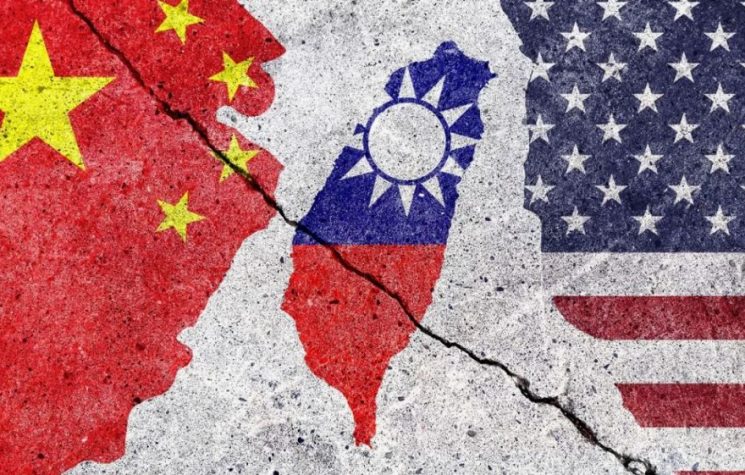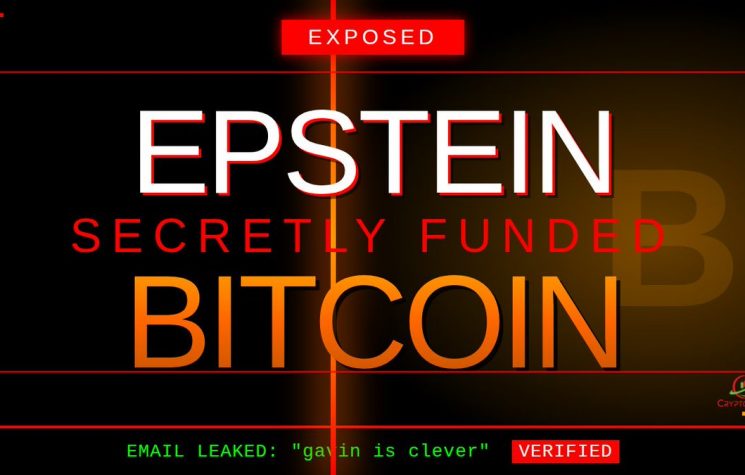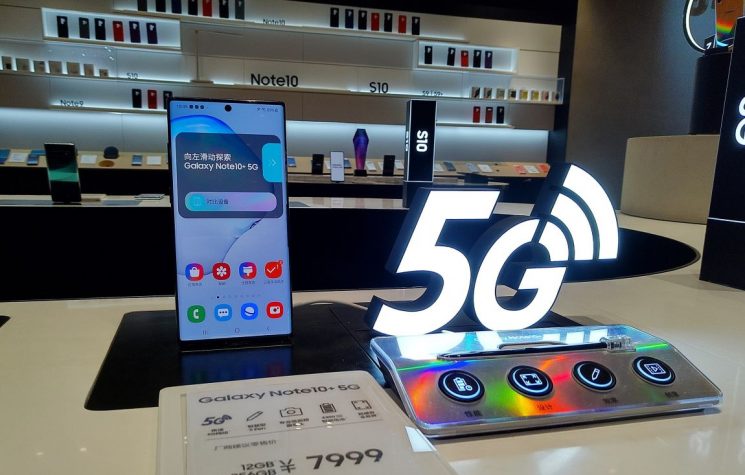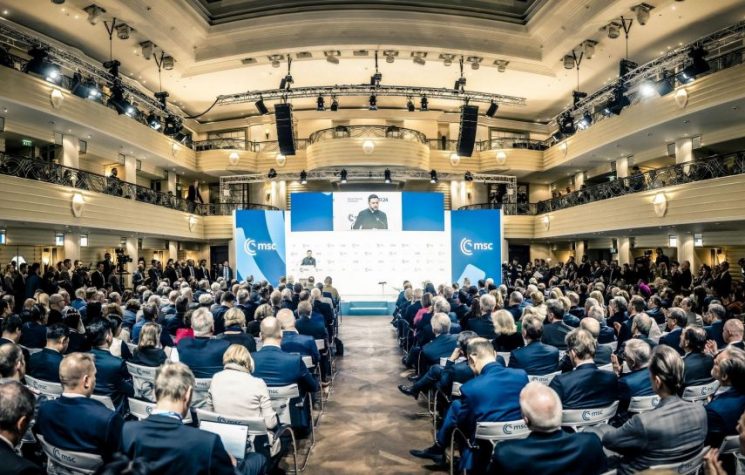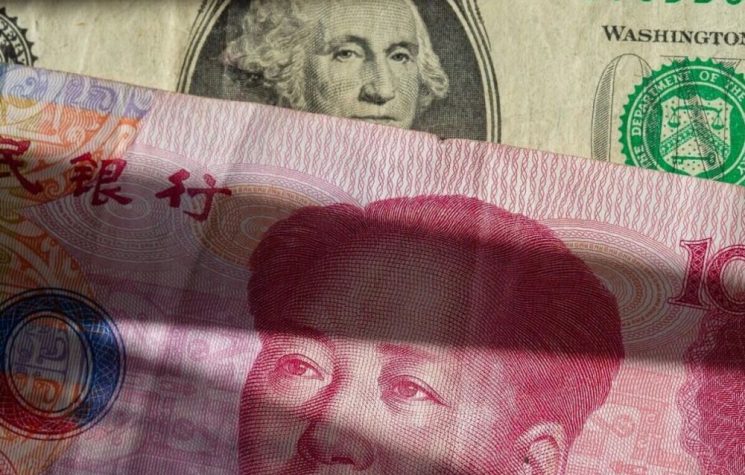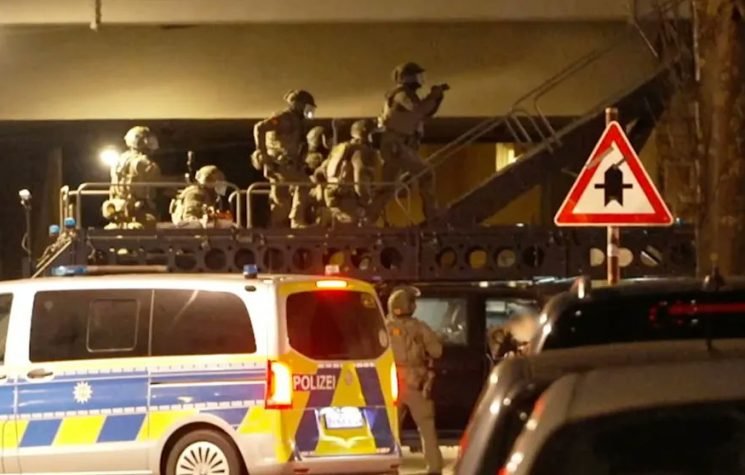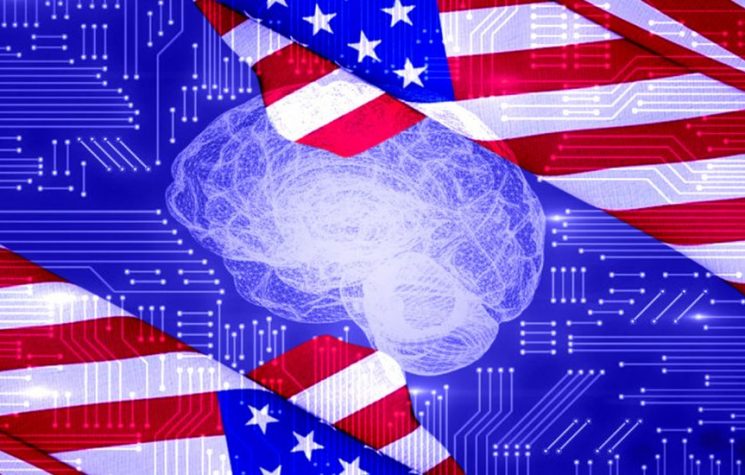The defining event of this post-Covid era (whomsoever wins in the U.S. elections), will likely be the U.S. de-coupling from China – Tech de-coupling of telecoms (from Huawei’s 5G); de-coupling from Chinese media and chat platforms; the purging of all China tech from the U.S. microchip ecosystem; the disconnecting of China from internet, from app stores, from undersea cables; and from access to U.S. cloud-based data storage systems – under Pompeo’s Clean Network programme. This represents the first heavy artillery barrage to a prolonged, and mud-laden, trench-warfare ahead.
This is not Cold War, but a reversion to an earlier era that then ended with hot war – when policy-makers (and markets) famously failed to appreciate the rising danger that was accreting during the sleepy-summer hiatus that elapsed between the assassination of Archduke Franz Ferdinand in late June 1914, and the outbreak of the First World War, five weeks later.
Diplomats of course understood that two heavily-armed alliances were on potential a collision course, but there had been episodes of sabre-rattling for several years before, whose failure to come to a head had induced a sense that the status quo would extend indefinitely. Opinion then had been influenced by Norman Angell’s 1909 best-seller, The Great Illusion, arguing that war had become impossible, because global trade and capital flows were too closely interlinked.
What they did not understand at that earlier moment was that the circumstances of mid-1914 (the Sarajevo moment) seemed so propitious both for Germany to aspire to empire, and for Britain to believe that it could quash it utterly. Just as circumstances are believed – by some in Washington – to be serendipitous today.
Trump et al seem convinced that the U.S. can use its financial and trade muscle – whilst America still predominates – to crush China’s rise, contain Russia, and arm-twist Europe into tech vassalage. The Balkan war in the early 20th century locked Germany’s fickle ally Austria-Hungary into Germany’s greater fight against Russia. And today, Pompeo hopes to lock (fickle) Europe into America’s containment of Russia. The Nordstream threats and the Navalny scam are just some of Pompeo’s ‘levers’.
Pompeo’s Clean Network assault is today’s ‘Sarajevo moment’. Policy-makers, and markets, remain blasé (as in 1914, when markets awoke to the risks, only in August, on the outbreak of war). By late January next year, the U.S. is very likely to be paralysed in an intractable, possibly violent, constitutional crisis – and in all-out tech war with China. By then, Europe and America are likely to be in full recession, as Coronavirus fires up for the winter.
Tech de-coupling is not explicitly military, yet nor is it system-neutral: Who it is that sucks up our data, and then mines it via algorithms, to know what we think, what we feel, and do, precisely has the power to shape our society socially and politically. The point here is that our data – were we to remain in the U.S. digital sphere – is about to be used and shaped, in a polarized, adversarial manner. And with the drums of war beating, inevitably comes the call for public full commitment.
It is obvious that, with the Clean ‘Fortress America’ project, Pompeo is taking Antonio Gramsci’s thesis that the cultural sphere is the most productive arena of political struggle – and is inverting it. Thus, instead of culture being the site of revolutionary action against an élite (per Gramsci), U.S. social net-platforms, cleansed of non-western rivals, become precisely the site where the system reasserts itself – neutering the possibility of political resistance via its most powerful weapons: big platform algorithmic and MSM demonisation of China (i.e. the ‘China Plague’) and Russia (‘assassination of its dissidents’). These can be the means by which a largely war-adverse Europe can be turned against China and Russia, in the name of advancing its ‘universal’ liberal values.
There is however, another equally significant de-coupling edging its way ahead: “Russia has been watching with growing disquiet that Germany is in another historical transition”, Ambassador Bhadrakumar writes, “that holds disturbing parallels with the transition from Bismarck in the pre-World War 1 European setting … To illustrate the change sweeping over the German ideology, in an interview with the weekly magazine Die Zeit in July, the German Defence Minister (who is also the acting chairwoman of the ruling CDU) stressed that it is “high time” to discuss “how Germany must position itself in the world in the future”.
She said, Bhadrakumar continues, that Germany is “expected to show leadership, not only as an economic power”, but also in “collective defence … it concerns a strategic view of the world, and ultimately it concerns the question of whether we want to actively shape the global order.” “Plainly put, the German voice is no longer the voice of pacifism, the Ambassador concludes”.
Kramp-Karrenbauer said “the claim of the current Russian leadership” to advocate their interests “very aggressively” must be “confronted with a clear position: We are well-fortified, and in case of doubt, ready to defend ourselves. We see what Russia is doing and we will not let the Russian leadership get away with it”.
“Suffice to say”, Bhadrakumar summarises, “seventy-five years after the end of World War 2, German imperialism is stirring — and, [its élites] once again, targeting Russia … Berlin plays a leading role in the western offensive against Russia and leads the NATO battlegroup in Lithuania. Germany and the U.S. are also working closely together on NATO moves against Russia. Germany is the most important staging area for NATO units deployed at the Eastern European border with Russia. And the German media is awash with opinion demanding that the NATO commitment should now finally be fulfilled and military spending increased to 2 percent of GDP”.
The well-connected, Carnegie Moscow bureau chief, Dmitri Trenin, writes in a similar vein: “Berlin is ending the era launched by Gorbachev of a trusting and friendly relationship with Moscow. Russia, for its part, no longer expects anything from Germany, and therefore does not feel obliged to take into account its opinion or interests … One can only imagine how Putin reacted to Merkel’s announcement that Navalny had been poisoned with the Novichok nerve agent. A stab in the back is the mildest reaction that comes to mind”.
Trenin writes: “Thirty years ago, German reunification seemed to be not only a historic reconciliation, but also a guarantee of future friendly relations and close cooperation between two peoples and states. Now that, too, has become a thing of the past … Russia is also embarking on a new chapter. The situation is accordingly becoming both simpler and more risky: The Kremlin is unlikely to take any drastic action immediately, but will from now on view Germany as being controlled by the United States. [And] as for the United States, Russia has long been engaged in a zero-sum hybrid war with it, in which there are fewer and fewer inhibitive factors left”.
Merkel’s generation of German politicians are staunchly ‘Atlanticist’, but only in the ‘liberal way’ – as she herself is. That is, they are committed to upholding the ‘universal liberal value system’. This places her, of course, at loggerheads with Trump; yet paradoxically, that makes the German leadership that much more susceptible to U.S. manipulation on China and Russia (which are now fully bi-partisan issues in Washington) – since, as Samuel Huntington noted, “universalism is the [useful] ideology of the West for confronting other cultures”. Shades of 1914, when Austria-Hungary was locked into the greater fight with Russia, in a similar fashion!
It is not hard to see the German élites’ bottom line: they are counting on a Biden win. Norbert Röttgen, chair of the Bundestag’s foreign affairs committee, and a candidate for the leadership of the CDU, put it this way: “Should Joe Biden win, I would expect his government to return to a partnership based on rational thinking and cooperation” i.e. the Euro-élites are counting on the return to ‘business as usual’. It won’t be though – the ‘old normal’ is well behind us.
European Council President, Charles Michel, spoke this week about how the EU can achieve ‘strategic autonomy’: The EU “wants to be stronger, more autonomous, and firmer”. The EU, Michel continued, is about to develop an “open model with greater awareness of our strength, with more realism, and perhaps less naivety. We have faith in the virtues of free and open economies, never in protectionism … But from now on, we will better enforce the level playing field, in a market open to those who respect its standards”.
Oh yes? Well, this may be fine for minnow states to be treated as vassals seeking an opening with Empire’s good grace for its manufactures, but it won’t work for tech, the New Economy, U.S., or the China-Russia axis. (Never mind that hypocrisy that the ‘level playing field’ is not a form of EU protectionism).
The U.S. is pulling the commanding heights of tech and its standards and taking them ‘back home’. China will continue to be expelled from the western digital sphere – as far as the U.S. is able. Wolfgang Munchau reports that the German coalition now has approved a de facto Huawei ban. It’s goal is to kill Huawei through full-force application of German bureaucracy. And Russia is de-coupling from Europe to work more closely with China, (thanks to Merkel and her cohorts).
But what then? Europe has no substitute to Huawei. 5G networks effectively represent the nervous system connecting the political, strategic, military, informative, economic, financial, industrial and infrastructural dimensions at a personal, local, national, international and transnational level. 5G networks, together with the exponential progresses in computing power and advances in AI, are the transformative agency of the New Economy. The point here is latency: the ability to integrate differing streams of data all together, and with virtually no delay. It is key not just to everyday ways of life, but to defence systems too.
Machine Learning is a specific subset of AI that trains machines. It trains AI to learn and adapt, and without the latency of human-driven decisions, efficiency can be at the forefront. Machine Vision: From autonomous cars and drones to robots and so much more of today’s cutting-edge technologies, they all share a dependence on machine vision. That means these machines must be able to “see” to perform their tasks in the physical world.
And all these need 5G to reduce latency. The U.S. hasn’t got it. And China leads. It leads on Big Data and on AI. Yes, the U.S. leads on semiconductors or ‘chips’, but for how long? China simply won’t allow itself to be expelled from the global semiconductor market. IT experts from Russia, ASEAN and Huawei are explaining, as Pepe Escobar reports, what could be described as a limitation of quantum physics is preventing a steady move from 5 nm (billionth of a metre) to 3 nm chips. This means that the next breakthroughs may come from other semiconductor materials and techniques. So China, in this aspect, is practically at the same level of research as Taiwan, South Korea and Japan. China’s breakthroughs have involved a crucial switch from silicon to carbon. Chinese research is totally invested in this switch, and is nearly ready to transpose its lab work into industrial production.
To whom then is China turning for tech co-operation? It is not Germany. As Asia Times’ David Goldman notes, “the cumulative impact of a series of sanctions on Russia has pushed Russia toward a strategic alliance with China, including close cooperation with China on 5G telecommunications and semiconductor R&D. Russia’s economy may be the size of Italy’s, but its brain is bigger than its body: It graduates more engineers per annum than the United States, and they are very well trained”.
And so – back to our ‘Sarajevo moment’. Pompeo has pulled the trigger on the Arch Duke. Dynamics have been set in motion. Yet we remain stuck in the interregnum waiting on the U.S. – whilst Euro-leaders count that Biden must win, and ‘normality’ be restored.
In the early twentieth century, Britain’s attempt to rip-apart global supply lines – to preserve its own; and to deny Germany its external links, effectively channeled resurgent German ambitions eastwards, across the plain of Europe, and ultimately, to a drive on Russia. It ended with war and economic depression.
Today, the U.S. demands that Europe sever from Russia and China, yet America has entered into internal crisis – and even at the best of times, cannot substitute for the Asian axis in most tech spheres. It would be hubris for Europe to imagine it can build a New Economy in rivalry to the Big Two, and absent their tech and diplomatic strategic co-operation. For Europe to try to sit out the present ‘phony war’ like the Grand Panjandrum, waiting for tech suitors to come to it, is no strategy, but rather a receipt for Depression.
It is not a great prospect … for European peoples struggling, not with the chimaera of Euro-empire, but with trying to manage their lives in difficult Corona times. One cannot help but notice that European politics at the national level is all domestic (school openings, virus restrictions and shrinking economies), whilst far-away Brussels fantasises about building a stronger, more autonomous, European ‘empire’.










